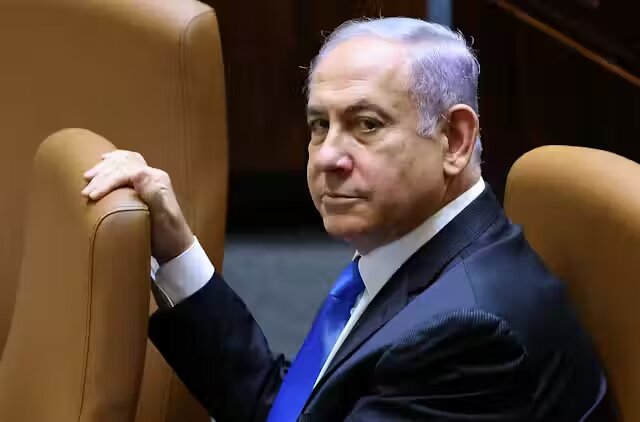Desperate and defiant: Netanyahu’s Gaza war deepens Israel’s isolation, domestic division

TEHRAN — Nearly two years into its war on Gaza, Israel is facing growing internal divisions and mounting international isolation, as Prime Minister Benjamin Netanyahu’s administration struggles to achieve its objectives.
Despite relentless military operations since October 2023, the Israeli army has failed to eliminate Hamas or secure the release of the remaining captives held in Gaza.
Nevertheless, Netanyahu plans to fully occupy the Gaza Strip, claiming it is the only way to defeat Hamas and bring home the captives. This strategy, however, has already come at an enormous cost.
Over the course of 22 months, Israeli military assaults have killed more than 61,000 Palestinians—including up to 19,000 children—and wounded more than 150,000 others. Israel has also imposed a near-total siege on Gaza, leading to mass starvation across the enclave. According to Gaza's Health Ministry, approximately 190 people, nearly half of them children, have died from hunger and malnutrition. Additionally, Israeli forces have reportedly shot dead more than 1,300 Palestinians who were seeking humanitarian aid.
The international community has increasingly condemned Israel’s starvation policy. In a recent interview with The Guardian, UN Special Rapporteur on the Right to Food, Michael Fakhri, stated: “Israel has built the most efficient starvation machine you can imagine... Israel is starving Gaza. It’s genocide. It’s a crime against humanity. It’s a war crime.” Fakhri first warned in February 2024 that Israel was orchestrating a campaign of deliberate mass starvation—an accusation that adds to existing genocide charges filed against Israel at the International Court of Justice.
Last week, two prominent Israeli human rights groups—B’Tselem and Physicians for Human Rights Israel—publicly accused Israel of committing genocide against Palestinians in Gaza.
As global outrage intensifies, some of Israel’s staunchest Western allies are shifting their stance. Several governments have signaled plans to recognize a Palestinian state—moves widely interpreted as efforts to obscure their own complicity in enabling Israel’s war. In the United States, a growing number of Democratic lawmakers is advocating for Palestinian statehood, as part of a charm offensive aimed at disillusioned voters.
According to a recent CNN report, Democratic Party leaders are increasingly distancing themselves from Netanyahu, fearing that unwavering support for him could alienate voters ahead of the 2026 midterm elections and the 2028 presidential race. “Fearing Zionism could die among Democrats,” the report noted, “Many party leaders are explicitly breaking with Netanyahu to try to stop anti-Israel attitudes from becoming a litmus test for next year’s midterms and the 2028 presidential primaries.”
Domestically, Netanyahu is under growing pressure. Nearly 600 retired Israeli security officials—including former Mossad chief Tamir Pardo, former Shin Bet head Ami Ayalon, and former deputy army chief Matan Vilnai—have signed a letter to President Donald Trump, urging him to intervene and press Israel to end the war. The signatories argue that continuing the war is severely damaging Israel’s global credibility. Israeli Army Chief of Staff Eyal Zamir has also reportedly favored putting an end to the Gaza conflict.
Meanwhile, protests within Israel have become a regular occurrence, as citizens express frustration over the Netanyahu administration’s failure to secure the release of captives and bring the war to a close.
Despite this widespread criticism, Netanyahu remains defiant. Yet, even Israel’s allies now acknowledge the military campaign has failed to achieve its goals. Western governments, particularly the United States, appear increasingly eager to end the war—but not without first making Netanyahu the scapegoat. This strategy is designed to deflect attention from their own roles in enabling the genocide in Gaza.
Leave a Comment